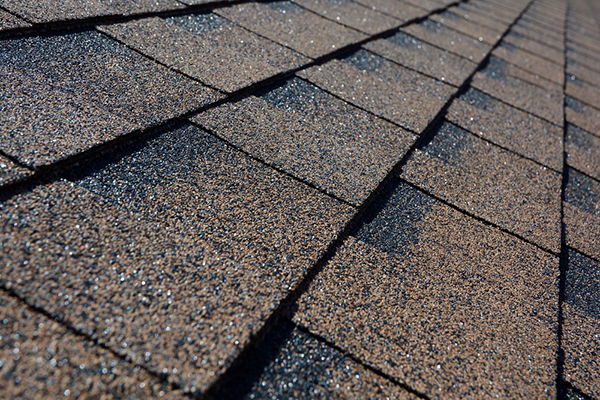Deciding Which Types of Roof Shingles Are Right for Your Home
Author: Barbara Horwitz-Bennett | June 14, 2023
A well-designed roof can be the crown of any home. Not only does it look appealing — it also enhances your home's energy efficiency, longevity and sustainability.

To select the right types of roof shingles for your home, you should carefully evaluate the pros and cons of a few common material choices, including asphalt, metal, tiles and slate.
Asphalt: Popular and Affordable
Green Builder Magazine reports that asphalt leads the pack as a roof choice, making up 83 percent of the residential market share. Made from fiberglass sandwiched between asphalt and ceramic granules, the shingles are affordable and relatively easy to install. A variety of colors and textures are available, although your color choice is limited to darker hues due to the color of the surface granules.
Asphalt does not have the longevity of other types of shingles. Most products last 15 to 20 years before they need to be replaced. Laminated asphalt, on the other hand, can survive 25 to 30 years and is more suitable for hurricane-prone coastal regions, according to the market research firm The Freedonia Group.
Sustainable Metal
Metal roofs are far more eco-friendly compared to other types of roof shingles. They are completely recyclable and can last more than 50 years. According to Green Builder Magazine, metal roofs can be sealed with cool roof finishes, which reduce heat absorption by as much as 36 percent. (That's a big discount on your air conditioning bill in the summer.)
At half the weight of asphalt, metal is also easy to install, durable and water resistant. However, it is often more costly. Home Advisor reports that metal roofing material can cost one and a half to three times more per square foot than asphalt. The installation cost for a 1,500-square-foot metal roof can be up to double the price of installing the same size asphalt roof.
Tiles and Slate
Similar to metal, clay and concrete tiles can last more than 50 years, and are a low-maintenance, highly durable roofing material. However, heavy masonry is a more expensive product and can be challenging to install. Green Builder Magazine suggests that these qualities make it more suitable for regional styles and high-end housing.
Slate is a major financial commitment, but that investment comes with a highly durable roof that may last for over a century. Slate roofs can be very beautiful and often lend your home a higher resale value.
Roofing Calculator points out that since slate is a natural stone, it's waterproof and impervious to fungus and mold. It's also highly resistant to temperature fluctuations and extreme weather.
Unfortunately, slate makes for a very heavy roof. Find out if your house can structurally support a slate roof before you consider this option. Additionally, slate installation is complex and requires an experienced contractor who specializes in slate roofing.
Setting Priorities
Ultimately, homeowners need to prioritize the most important aspects of their new roof when choosing a roofing material. Are your main concerns cost and longevity, or do you need a durable roof that will last through ice storms or hurricane season? Maybe you want to splurge on aesthetics or potential home resale value. With a little research and a carefully crafted list of priorities, you can make an educated choice for your home.